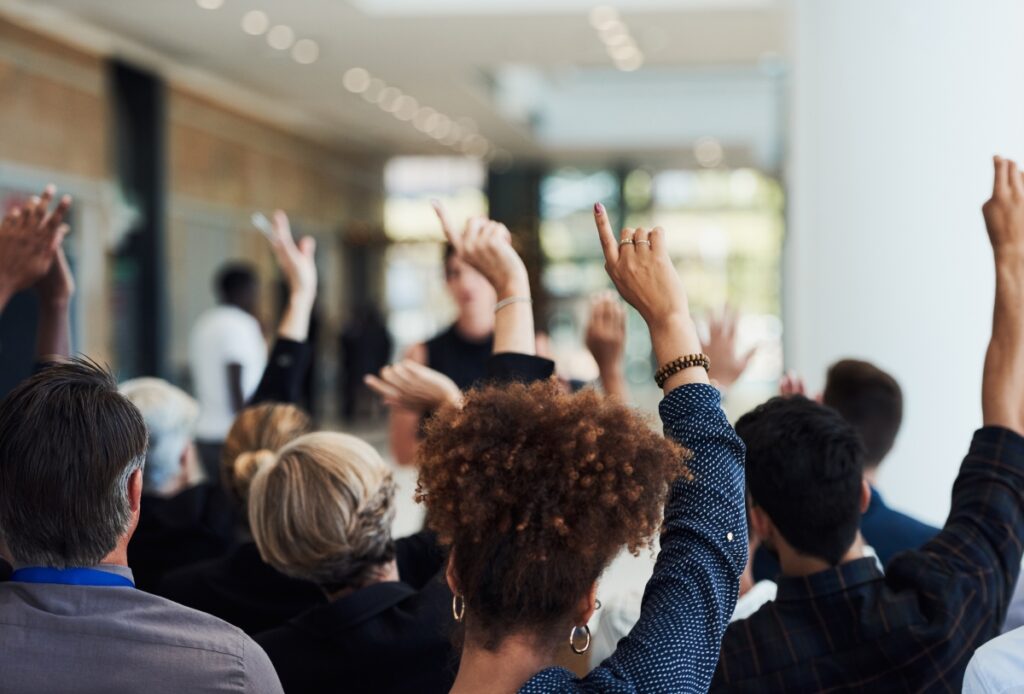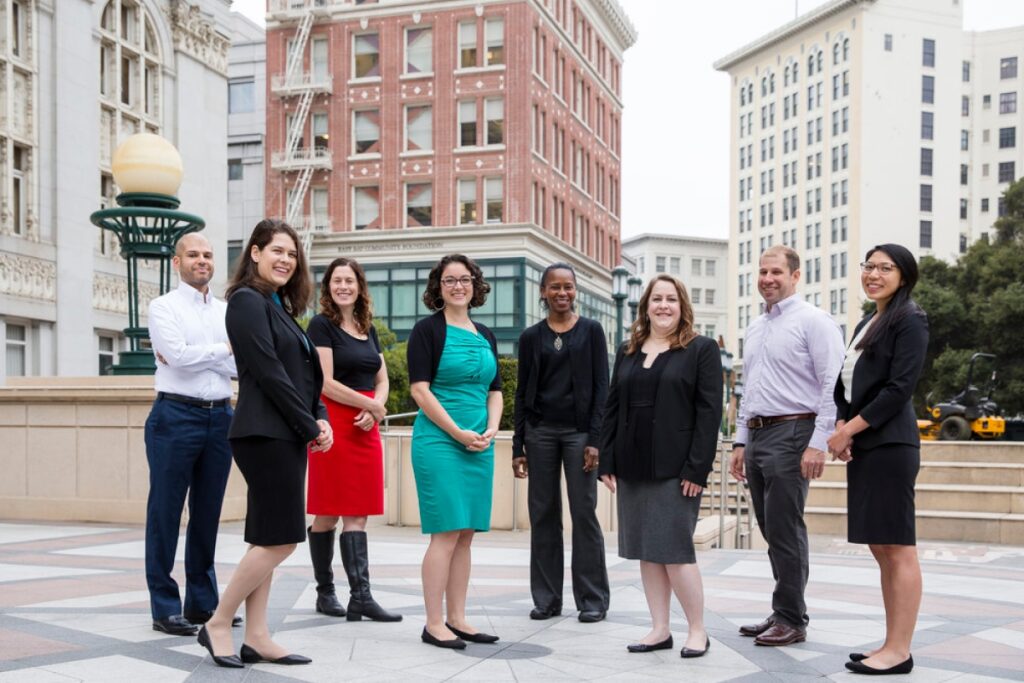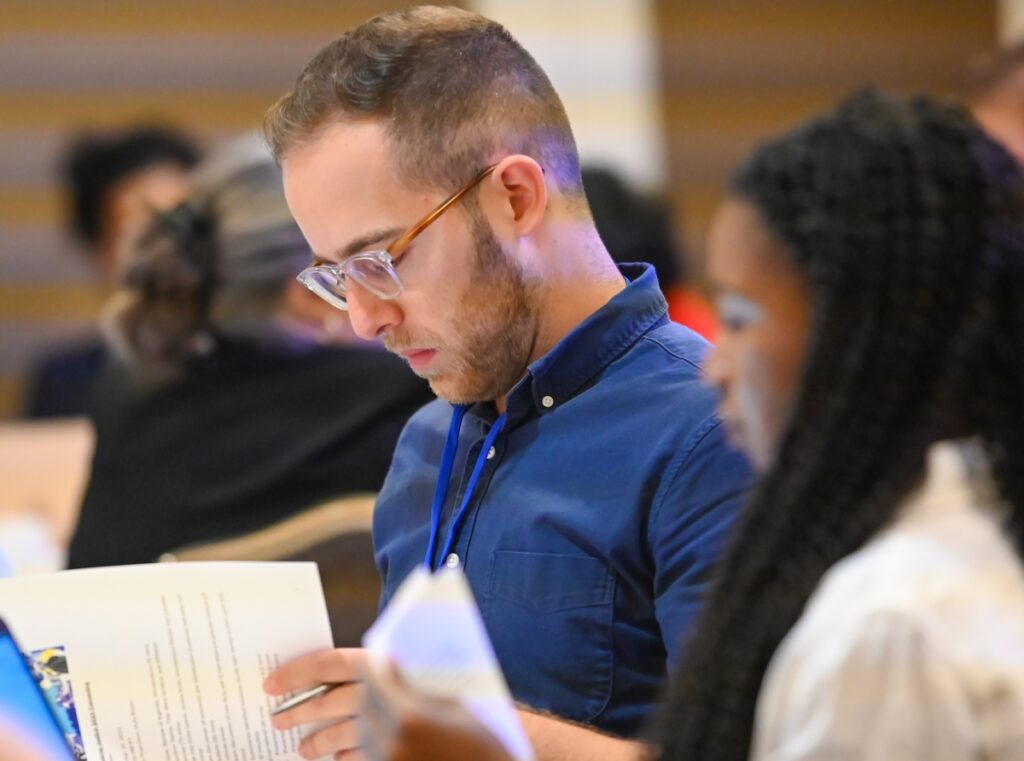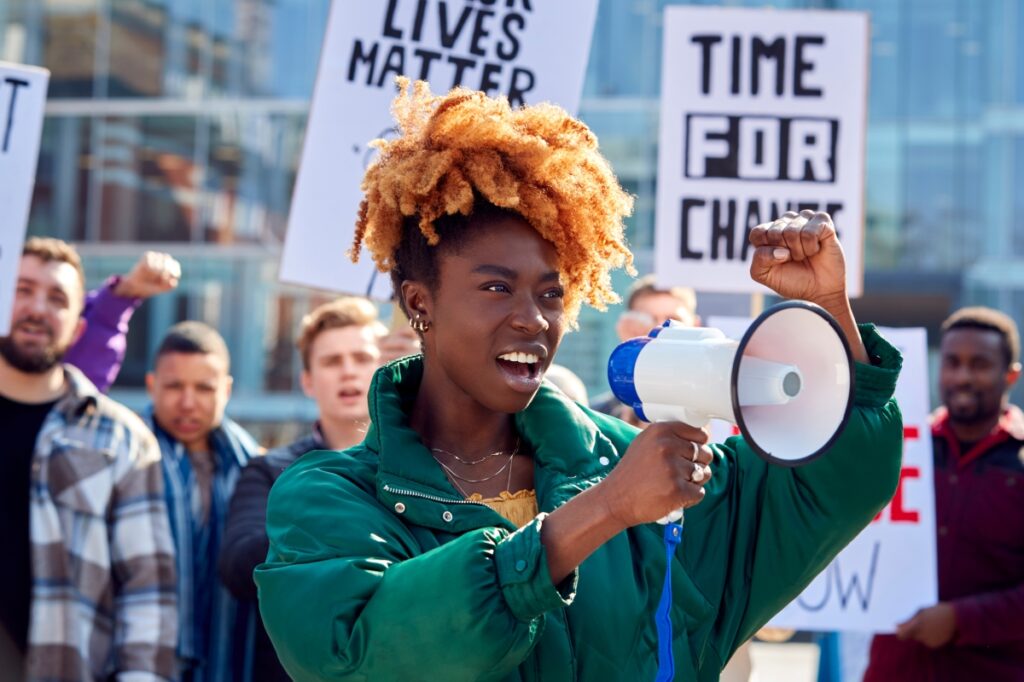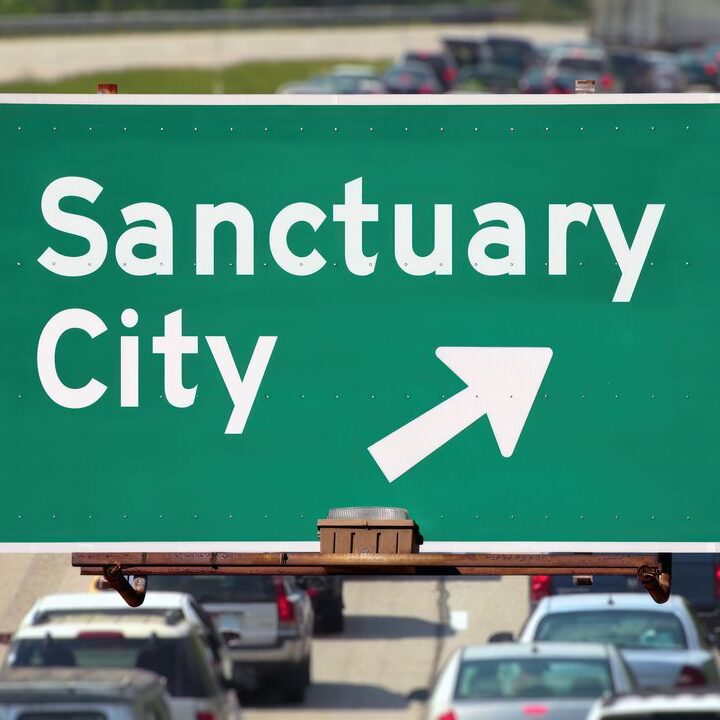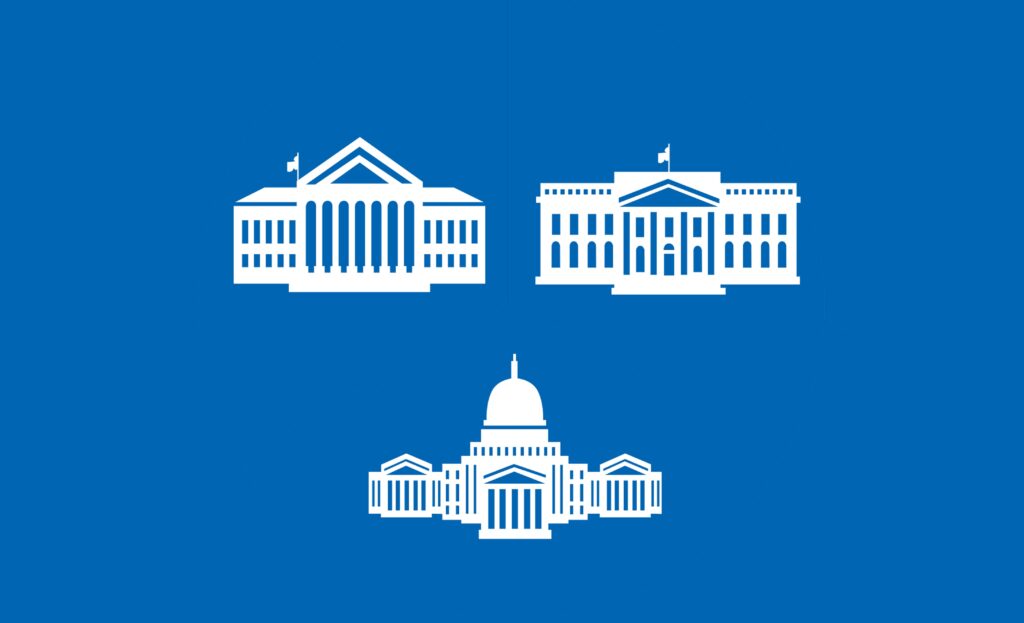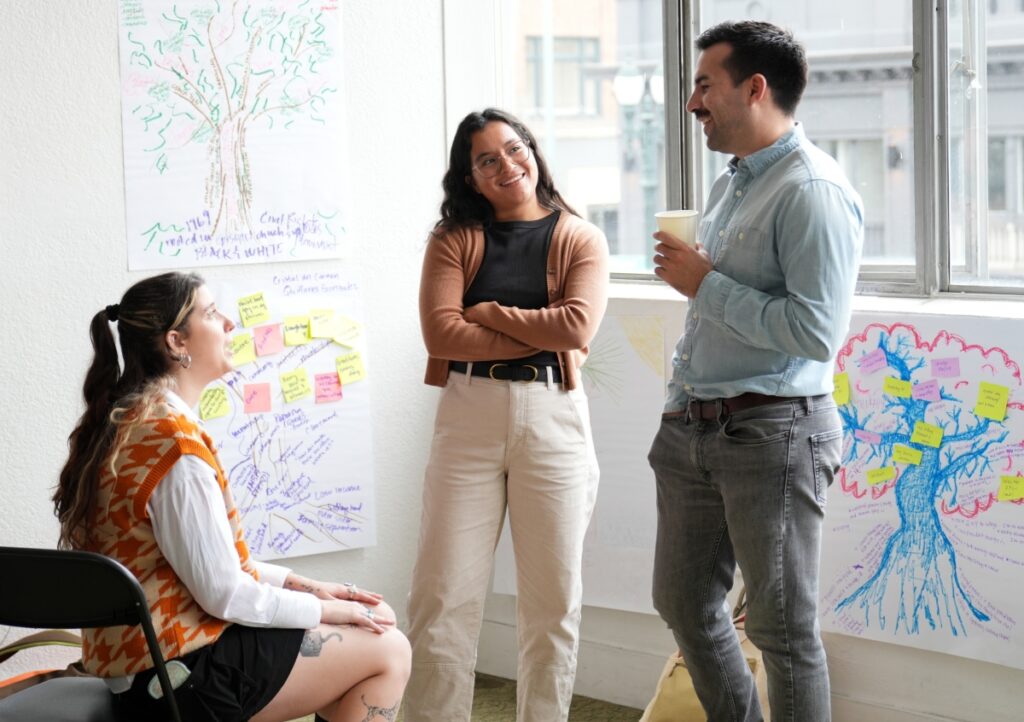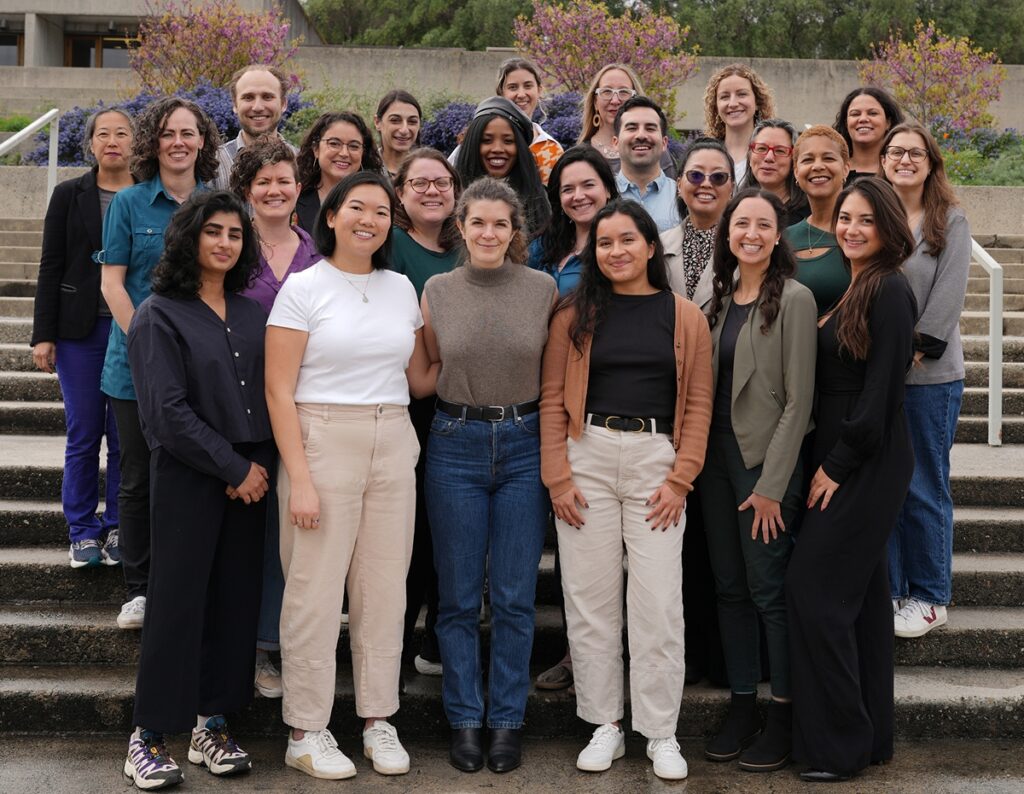- What we do
- Training and fellowships
- Affirmative leaders fellowship
Affirmative Leaders Fellowship
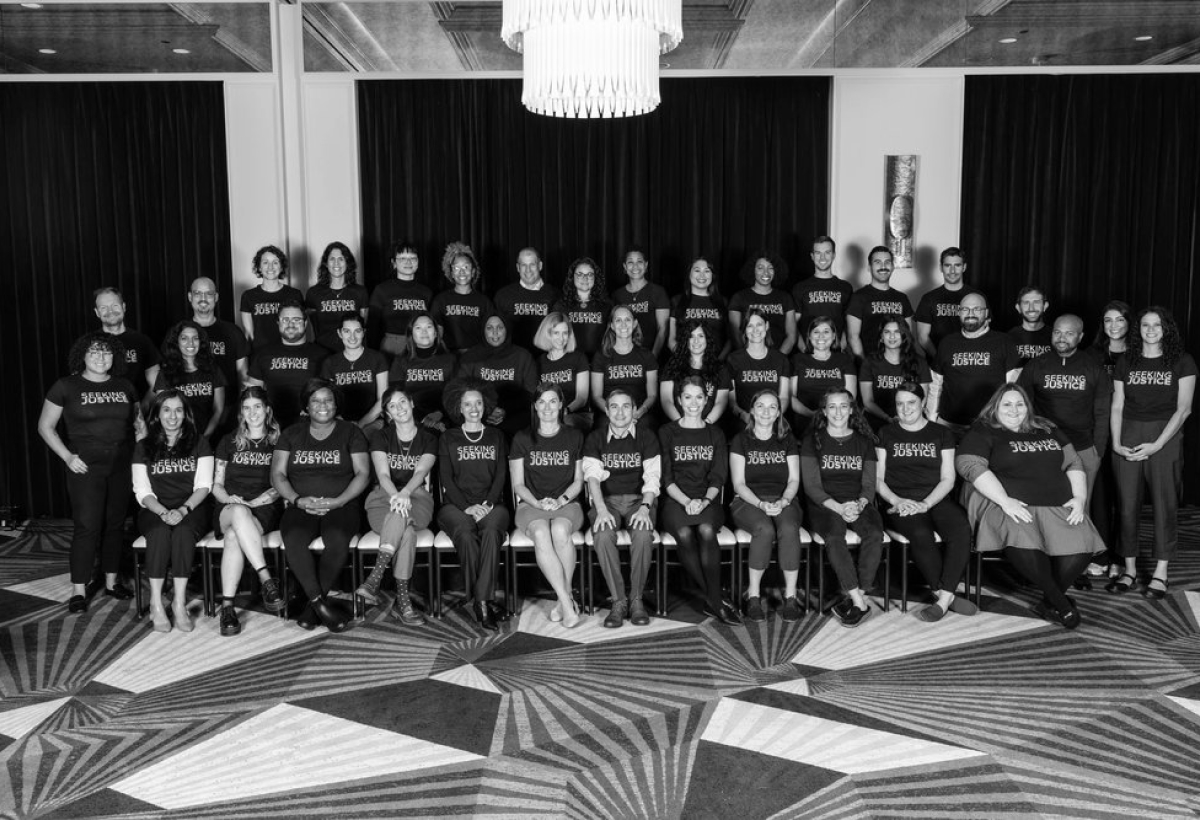
Applications for the 2025 cohort of the Affirmative Leaders Fellowship are now closed. If you are interested in being notified when applications open in 2026, please fill out our interest form.
Public Rights Project’s Affirmative Leaders Fellowship is for mid-career government attorneys who want to grow their leadership capacity and build a community of like-minded peers.
In response to increasing attacks on local authority, we’ve revamped the fellowship program to provide government attorneys with the essential skills to address the urgent challenges caused by federal overreach. Government attorneys play a critical role in pushing back against policies that undermine fundamental rights and ensuring that enforcement efforts reflect the needs of all residents, especially those most impacted by systemic inequities. The Affirmative Leaders Fellowship provides the tools, strategies, and networks needed to meet these challenges head-on and advance justice in our communities.
The 2025 fellowship includes four months of training and professional development, plus access to a national network of government attorneys. This support enables fellows to initiate, expand, or deepen the impact of their offices’ proactive legal work. Affirmative Leaders Fellows work on a range of civil rights issues that threaten local authority and directly impact marginalized populations.
You can expect a comprehensive range of trainings, events, and other engagement opportunities over 4 months, including:
- 1-2 live sessions per month (topic-specific training and network building)
- 1-day virtual orientation
- 2-day virtual mid-year convening
- Access to 10+ asynchronous courses
- Coaching session (sign-up required)
- Sessions with PRP trusted partners
Fellows will strengthen and apply skills in federal litigation, equitable enforcement, community engagement, and affirmative impact litigation.
2025 program timeline
April 30: Application form opens
May 20: Public virtual information session
June 13: Applications close at 11:59 p.m. ET / 8:59 p.m. PT
June 25: Fellowships and scholarships offered
July 24: Fellowship orientation
July 25 to November 13: Fellowship programming
Why join the Affirmative Leaders Fellowship?
With our professional development programming, government attorneys can build the necessary skills to address the urgent challenges caused by federal overreach.
🚀 Master high-impact litigation and leadership
Gain valuable hands-on, expert-led training in litigation, coalition building, and community engagement. Learn how to take on systemic injustices, sharpen your courtroom impact, and drive real change in your jurisdiction. Leave with practical tools you can apply immediately.
🤝 Build a powerful network of civil rights defenders
Join a selective, nationwide cohort of government lawyers who share your commitment to justice. Forge deep connections, collaborate on cases, and gain a lifelong peer support system that strengthens your work.
⚖️ Create an equity-driven approach
Advance your impact by integrating racial and economic justice strategies into your enforcement work. Learn to craft policies and litigation approaches that protect marginalized communities and promote lasting equity.
🏆 Amplify your influence and professional standing
Position yourself as a leader in proactive legal action — whether that’s shaping policy, leading high-impact cases, or becoming a national voice for justice. Gain recognition for your work and open doors to new opportunities.
🔹 Civil rights are under attack. Will you step up to lead?
Eligibility
Fellows must be current employees of a state, local, or tribal government law office, with an active bar membership in the jurisdiction where their office is located. The fellowship is best suited for mid-career government attorneys who want to strengthen their leadership capacity and advance to the next stage of their careers. Interest in affirmative litigation will enhance the fellowship experience, but is not a requirement to participate.
Skills and experience
Diverse background: Candidates may have a wide range of experience. For example, some participants might be skilled prosecutors or general counsel seeking to transition to civil litigation. Others might be experienced civil litigators transitioning to plaintiff-focused work or moving into government for the first time from the private or nonprofit sectors.
Passion about the power of government to improve residents’ lives: Lawyers who want to use the law to proactively make positive change in their communities.
Strong interpersonal and communication skills: Team players who are able to bring together a diverse set of stakeholders and build trusting relationships both inside and outside their agencies.
Results-driven advocates: Public servants with the ability to achieve outcomes and results on time, despite resource constraints
Ability to navigate complex organizations: Candidates with a track record of navigating the intricacies of government organizations and working collaboratively, both inside their offices and with external stakeholders, to solve problems and seize opportunities.
Program fees and scholarships
Standard program fee: $1,950
Fully-funded and subsidized seats available
We’re committed to expanding access to the fellowship so more government lawyers can protect their communities at a time when every voice is needed. Therefore, we’ve restructured the program and secured additional resources to reduce the cost without compromising the program’s quality. Additionally, to support as many dedicated advocates as possible, we now offer a sliding scale for participation and full scholarships.
How to apply
Applicants must submit a resume, three short essay responses, and a letter from their employer indicating support for their participation in the fellowship. Download a template for the employer-support letter here. Applications must be received by June 13, 2025.
Programming
Fellows will participate in workshops, each running about 60-90 minutes. Sessions may include advance reading, small group work, and follow-up prompts on our networking platform, PRP U. We estimate the average monthly time commitment to be 4-6 hours.
Session topics will include:
- Selecting tools and targets
- Building your appellate case
- Managing projects
- Influencing stakeholders and building partnerships
- Making your pitch
Additionally, the fellowship includes an orientation and a virtual convening. The orientation will take place July 24, where fellows will learn more about the program and meet others in the cohort. The virtual convening, which will span two days, will allow fellows to learn from incredible speakers, network with sector leaders, and practice affirmative litigation skills.
Fellowships
Affirmative Leaders Fellowship goals
-
Capacity building
We build the capacity and expertise of local government officials. -
Connection
We convene, connect, and influence government officials on civil rights issues. -
Knowledge sharing
Our team has deep expertise in affirmative litigation across a range of civil rights issues. -
A better democracy
We strive for a democracy where every government protects and advances civil rights.
